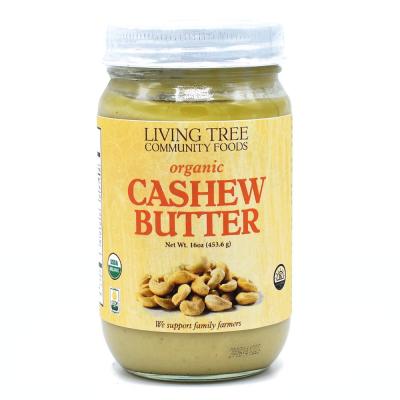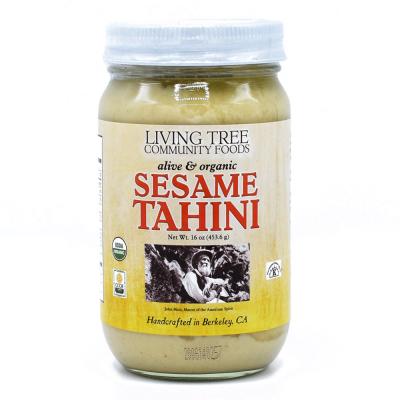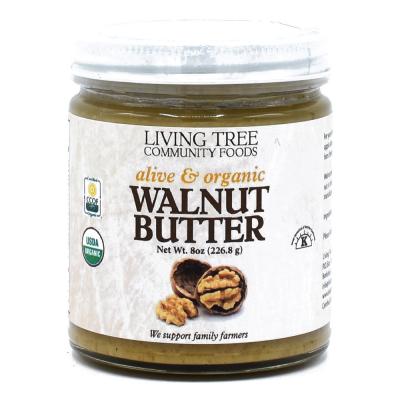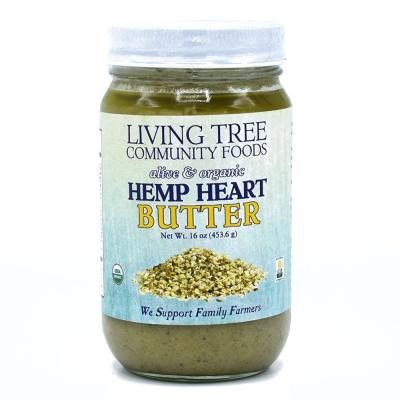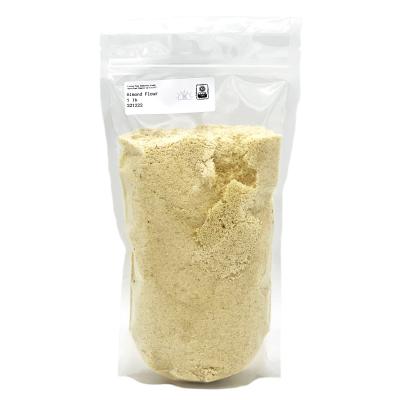
Video: Zucchini Baba Ganoush - Alive and Organic
My dear brothers and sisters,
Baba Ganouch is a creamy, savory, eggplant dip with tahini, garlic and citrus. What better way to make your dinner reverberate than with a dreamy dip and some homemade pita to go with it?
It is usually made with roasted or baked eggplant. Let’s substitute zucchini and crookneck summer squash.Instead of baking we’ll be grating, so that its raw and alive. We add our Living Tree tahini and a tablespoon of our Living Tree almond butter, we follow with our Greek Heritage Olive Oil, some chopped cloves of garlic, salt and lime juice. In a mixing bowl, we stir it all together. Voila’! We have an ecstatic, creamy dip.
On sale this week is our Greek Heritage Olive Oil. Its high in biophenols. Our pleasure to offer a $6 discount. We suggest you try some and meditate on how alive and organic this world could be.
Ben with GrowVeg, our favorite gardener, tells us how the long, warm days of summer are over but his harvests are not. He takes us on a delightful tour. His garden is a riot of color with nasturtiums, borage and marigolds interplanted among his veggies. As he harvests he also plants his winter garden with kale, leeks and chard.
Our Victory Garden Sale, this month, includes Cashew Butter, Tumeric and Honey Butter and Tomatoes - Dried and Organic of course! We offer these at a 10% discount.
We follow with a profound article by Jonathan McLatchie on the difficulties in explaining the origin of life in a mechanistic way.
Then Yishan Wong makes a magnificent reply to Bill Gates who said recently that planting trees as a key solution to tackling climate change was “complete nonsense” and that view must be held by “idiots,” not “science people”. Mr. Wong heads a company dedicated to restoring the world’s forests to revive ecosystems and build thriving communities. They have facilitated the planting of over 850,000 biodiverse trees and plants and created nearly 700 jobs worldwide—more than half of which are held by women.They launch early-stage forestry teams to build and scale biodiverse reforestation projects worldwide.
Then there is Federal bill H.R. 4141 the new pro-wireless industry bill introduced in Congress. This bill aims to eliminate key environmental and historic preservation safeguards.In addition to the health, privacy and safety risks, wireless technology harms our natural environment. A growing body of science demonstrates these harms to plants, animals, insects, bacteria, and the atmosphere, including:
- Biological damage, adverse effects on growth rate and shorter life spans in plants;
- Irreversible infertility, increased mortality rates and altered genetic expression in the brain in animals;
We take heart that you, in your wisdom, will overcome, flourish and thrive,
Jesse Schwartz PhD
President
Living Tree Community Foods
Video: Full Autumn 2023 Garden Tour by GrowVeg
October Victory Garden Sale
10% off this month’s featured items (Remember, if you buy 3 or more of any Living Tree manufactured product, you get an additional 10% off!)
Living Tree Community Foods Organic Cashew Butter is created in Berkeley, California from organic cashews and our raw organic Almond Oil. It is produced slowly, in small batches, to give it a wondrous, creamy texture. It’s perfect when paired with cucumbers, celery or even peppers. It’s also a great topping for fruits and desserts. What a delightful way to add some variety to your lunches!
Living Tree Community Foods Organic Turmeric and Honey Butter is created in Berkeley, California from alive, raw sesame seeds, turmeric and honey. We have added raisins, coconut oil and spices to highlight the delightful flavor. We make it slowly, in small batches, to give it a wondrous, creamy texture. We urge you to research what people are saying about the benefits of turmeric and honey.
Living Tree Community Foods organic tomatoes are grown in California, free of salt and not sulfured. Toss into salads or pasta! Place them around a bowl of Living Tree Alive Olive Oil as a dip. Your friends will delight in these hors d’oeuvres.
Organic Dried Tomatoes are prepared from fresh, sound, sun-ripened Roma tomatoes washed with microbiologically controlled water, and mechanically dried under controlled conditions. About 18 pounds of fresh tomatoes produces 1 pound of dried tomatoes. They are an excellent source of vitamins A, C, K, B1, B6 and fiber.
First Life Must Have Had a Minimally Reliable Replication System — A Conundrum for Materialists

by Jonathan McLatchie
We have often considered the difficulties inherent in the popular RNA world scenario that is envisioned for primitive life. According to this model, prior to the emergence of DNA and proteins, RNA ribozymes served as the first replicators. The model is intended to circumvent the problem of causal circularity — that DNA must be copied by proteins, which are themselves coded for by DNA. Problems abound for the RNA world theory. Chief among those are the inherent instability of RNA (being single stranded, and possessing an additional 2’ OH group, rendering it prone to hydrolysis) and the fact that ribozymes have not been shown to be capable of complete self-replication.
A Physical Limitation
Indeed, on this latter point, when RNA forms complementary base pairs to fold back on itself, part of the molecule no longer presents an exposed strand that can serve as a template for copying. Thus, there is a physical limitation on the capability of RNA to self-replicate.
Another problem that has not received as much attention is the problem of replication fidelity. What do I mean by this? An important requirement of life is a means of minimally accurate self-replication. Biologist Jack Szostak explains that “In order for RNA to have emerged as the genetic polymer that enabled protocells to evolve in a Darwinian manner, the process of RNA replication must have been accurate enough to allow for the transmission of useful information from generation to generation, indefinitely.”1 Indeed, as biochemist Sy Garte observes, when the replication fidelity falls below a certain threshold, “modern organisms undergo an error catastrophe from which they cannot recover, as has been shown in the cases of viruses, aging, in evolution and in macromolecular replication in early life.”2 Viruses, particularly RNA viruses, are close to this critical threshold, with approximately one mutation per replication — and, in fact, increasing the rate of mutations to result in an error catastrophe has been proposed as an anti-viral strategy.
Reddit’s ex-CEO: Bill Gates is wrong about trees
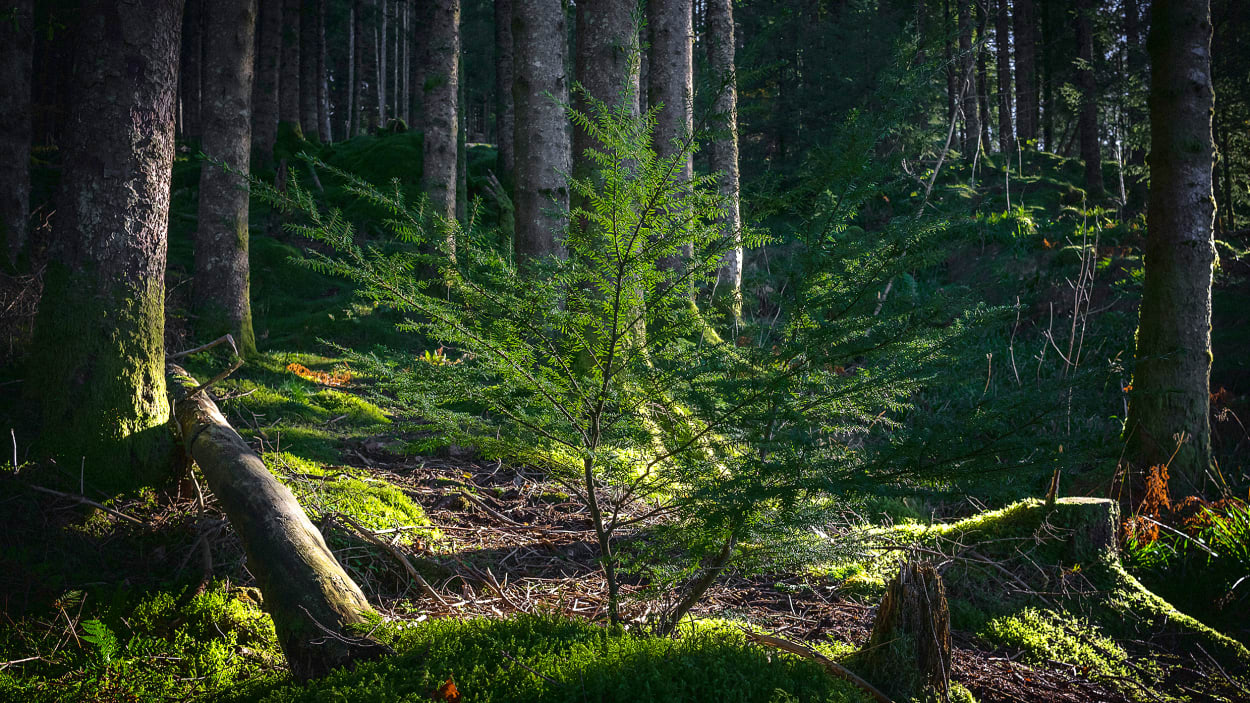
by Yishan Wong
(Fast Company) On stage last week during Climate Week in New York, Bill Gates said planting trees as a key solution to tackling climate change was “complete nonsense” and that view must be held by “idiots,” not “science people.”
But when confronted with big problems, even smart people have a tendency to dismiss great solutions out of hand if they encounter just a couple issues with them, rather than taking the time to think more deeply.
Bill Gates comes from a lifetime of success in the technology world. But could that have affected his ability to give trees a fair shake?
I’m the CEO of Terraformation, a company dedicated to restoring the world’s forests to revive ecosystems and build thriving communities. With over 50 million seeds stored across our global seed bank network, we’ve facilitated the planting of over 850,000 biodiverse trees and plants and created nearly 700 jobs worldwide—more than half of which are held by women. Our Seed to Carbon Forest Accelerator continuously launches early-stage forestry teams to build and scale biodiverse reforestation projects worldwide.
Stand Up Against the Wireless Takeover – Oppose H.R. 4141

Federal bill H.R. 4141 is the new pro-wireless industry bill introduced in Congress. This bill aims to eliminate key environmental and historic preservation safeguards required by the National Environmental Policy Act and the National Historic Preservation Act, which are designed to protect people and the environment.
In addition to the health, privacy and safety risks, wireless technology harms our natural environment. A growing body of science demonstrates these harms to plants, animals, insects, bacteria, and the atmosphere, including:
- Biological damage, adverse effects on growth rate and shorter life spans in plants;
- Irreversible infertility, increased mortality rates and altered genetic expression in the brain in animals;
Previous Newsletters
October 3, 2023 - Video: Sweet Potato, Apple and Cucumber Juice Smoothie
September 26, 2023 - Video: Rejoice with Baba Ganoush
September 19, 2023 - Video: Come Alive with Kale, Celery & Cucumber Juice
September 12, 2023 - Video: Juicing a Watermelon, Exemplifying Aliveness
September 5, 2023 - Video: Corn Chowder - Alive and Organic, Of Course!
August 29, 2023 - Video: Rejoice with a Fig, Peach & Avocado Smoothie!
August 22, 2023 - Video: Mediterranean Salad with Sun-dried Olives and Greek Heritage Olive Oil
August 15, 2023 - Video: Mango, Peach Almond Butter Ice Cream - Alive and Organic!
August 8, 2023 - Video: You Must Sow These Seeds in August by Ben with GrowVeg
August 1, 2023 - Video: We talk with Dave Chapman on Challenges to Organic
July 25, 2023 - Video: It's Not Too Late! Plant Your Victory Garden Now!
July 18, 2023 - Video: Mango Avocado Cheesecake - No Bake & Organic
July 11, 2023 - Video: Mango, Peach and Chia Seed Pudding
July 4, 2023 - Video: Pineapple Almond Butter Smoothie - Alive and Organic
June 27, 2023 - Video: Rejoice with Blueberry, Peach, Avocado Ice Cream
June 20, 2023 - Video: Come Alive with Green Pea Hummus
June 13, 2023 - Video: Awaken to a Banana, Almond Butter & Blueberry Smoothie
June 6, 2023 - Video: Chia Strawberry Mango Pudding for Breakfast? Why not?
May 30, 2023 - Video: We Talk with Dave Chapman on Challenges to Organic
May 23, 2023 - Video: Your Tax dollars Subsidize Junk Food
May 16, 2023 - Video: We Welcome Spring With a Mango Avocado Cheesecake, No Bake and Organic
May 9, 2023 - Video: A Garden for the American Spirit
May 2, 2023 - Video: Vanilla, Mango and Chocolate Ice Cream - Alive and Organic
April 25, 2023 - Video: Plant a Victory Garden! Alive and Organic!
April 18, 2023 - Video: Join Us for Coconut Chia Seed Pudding - Alive & Organic
April 4, 2023 - Video: The Woolly Mammoth Meatball
March 28, 2023 - Video: Mango, Avocado Cheesecake - No Bake & Organic
March 21, 2023 - Video: Apropos 1929 - Plant a Victory Garden Now!
March 14, 2023 - Video: Avocado Apple Pie - No Bake, Alive & Organic
March 7, 2023 - Video: Join Us for Coconut Chia Seed Pudding - Alive & Organic
February 28, 2023 - Video: Ebullient Kale Salad with Almond, Cashew, Black Tahini Dressing
February 21, 2023 - Video: Out of the Depths - A Victory Garden!
February 14, 2023 - Video: Fasting for Regeneration
February 7, 2023 - Video: Let’s Learn From Obesity
January 31, 2023 - Video: Watch As We Create Almond Butter, Chia Seed Pudding
January 24, 2023 - Video: The Apples and Oranges of Inflation Depression
January 17, 2023 - Video: Amidst the Winter's Drear, the Almond Trees are Rejoicing!
January 10, 2023 - Video: Almond Butter Energy Balls - Alive & Organic
January 3, 2023 - Video: The Bubble Economy and the Greatest Generation
December 27, 2022 - Video: Out of the Depths, Let’s Get Growin’ America!
December 20, 2022 - Video: Sweet Potato, Almond & Avocado Pie
December 13, 2022 - Video: Crypto and the Tulip Mania
December 6, 2022 - Video: Let’s Exemplify Aliveness with a Cheesecake from Cashew Butter - Organic Of Course!
November 29, 2022 - Video: Bye, Bye Crypto Pie, Vegan and Gluten Free, Topped with Ponzi Scheme Ice Cream
November 22, 2022 - Video: Meet the Men Who Grow Your Almonds
November 15, 2022 - Video: Avocado, Almond Butter, Chocolate Pie - Alive & Organic, Of Course!
November 8, 2022 - Video: Fasting - The Oldest Cure
November 1, 2022 - Video: The Loneliness and the Ebullience
October 25, 2022 - Video: Charles Darwin and “The Science”
October 19, 2022 - Video: America, Turn Your Banana Peels Into Gold!
October 12, 2022 - Video: 20 Million Victory Gardens
September 28, 2022 - Video: Apple, Cucumber, Tomato and Grape Juice - Supercharged!
September 20, 2022 - Video: Life Energy Will Stream with a Green Drink
September 13, 2022 - Video: Gravenstein Apple, Seckel Pear, Cucumber and Kale Juice Followed by Thoughts on Health Care
September 6, 2022 - Video: On Labor Day We Honor "The Greatest Generation"
August 30, 2022 - Video: Let’s Drink to Organic with an Almond Butter, Banana Smoothie
August 23, 2022 - Video: A Green Drink for the American Spirit
August 16, 2022 - Video: Mango, Peach and Almond Butter Ice Cream Topped with Thoughts on Ultra Processed
August 9, 2022 - Video: Food Is Medicine - Simple Steps To Fill Your Plate With Delicious Food by Julieanna Hever
August 2, 2022 - It is Not Too Late to Start a Container Garden
July 26, 2022 - Video: Drink Wheatgrass - Now!
July 19, 2022 - Video: Plant a Victory Garden “Singing So Proud to be Alive“
July 12, 2022 - Video: High Summer Avocado, Walnut & Tomato Drink
July 5, 2022 - Video: Cabbage Soup Juice - Alive and Organic, Of Course!
June 28, 2022 - Video: A Drink for These Times
June 21, 2022 - Video: We Prepare Gazpacho (A Traditional Soup) - Alive and Organic, Of Course!
June 14, 2022 - Video: A No-Bake Chocolate Cake Topped with the Highest Inflation in Four Decades
June 7, 2022 - Video: Almond, Apricot, & Peach Smoothie with Wheatgrass
May 31, 2022 - Video: Reverberate with an Avocado Chocolate Smoothie
May 24, 2022 - Video: Mango, Peach and Chia Seed Pudding
May 17, 2022 - Video: A Green Drink for the American Spirit
May 10, 2022 - Video: Five Days of Redemption
May 3, 2022 - Video: Join us for Coconut Chia Seed Pudding - Alive and Organic
April 26, 2022 - Video: Seeds of Renewal and Regeneration - A Victory Garden for the American Spirit
April 19, 2022 - Video: Do- it- yourself Almond Milk with Blueberries, Strawberries, Peaches and Cherries
April 12, 2022 - Video: The Loneliness of the Live Food Eater
April 5, 2022 - Video: The Necessity of Victory Gardens
March 29, 2022 - Video: Still NO fossils?
March 22, 2022 - Video: Wheatgrass in Your Kitchen Parsley, Lettuce and Kale in Your Backyard
March 15, 2022 - Video: Apropos Inflation and the Greatest Generation
March 8, 2022 - Video: Spring Awakening
March 1, 2022 - Video: America! The Almonds are Blossoming
February 22, 2022 - Video: Hug the Earth and Plan Your Victory Garden
February 15, 2022 - Video: Genetically Modified Environments: A Discussion
February 8, 2022 - Video: Out of the Depths, We Plant Tomatoes!
February 1, 2022 - Video: A Green Drink for the American Spirit
January 25, 2022 - Video: From the Winter of Our Discontent, A Garden for Early Spring
January 18, 2022 - Video: The Arrival of the Fittest - Some reflections on Alfred Russell Wallace
January 11, 2022 - Video: Some Reflections on the Greatest Generation
January 4, 2022 - Video: Let's Get Back to Our Vital Roots
December 28, 2021 - Video: Two Brilliant Inquirers on the Dangers of Glyphosate
December 21, 2021 - Video: Amidst the Winter's Drear, the Almond Trees are Rejoicing!
December 14, 2021 - Video: Inflation - Highest in 39 Years; Plant a Victory Garden
December 7, 2021 - Video: Glyphosate Is An Insidious And Cumulative "Slow Kill"
November 30, 2021 - Video: Drink Wheatgrass - Now!
November 23, 2021 - Video: An Edible Schoolyard for the American Spirit
November 16, 2021 - Video: Metaverse Man vs. Jeffersonian American
November 9, 2021 - Doing What We Can To Minimize The Risk Of Lifestyle-Induced Disease During Childhood
November 2, 2021 - Video: Something is Happening, and You Don't Know What it is, Do You, Mister Darwin?
October 26, 2021 - Video: Eating And Cooking To Avoid Heart Disease And Cancer
October 19, 2021 - Video: Printing Press Money and the Cost of Tomatoes
October 14, 2021 - Video:The Momentous Encounter: Columbus Meets the Indigenous
October 10, 2021 - Video: A Talk with Judith Redmond, A Magnificent Family Farmer
October 3, 2021 - Safeguard the global microbiome from GMOs 2.0 - Authors: Jeffrey Smith | Stephanie Seneff
September 19, 2021 - Video: The Incredible "10% Rule" That Every Gardener Should Use by Huw Richards
September 9, 2021 - Video: America! It's Raining Almonds!
September 1, 2021 - Video: On Labor Day We Honor "The Greatest Generation”
August 25, 2021 - Video: A Victory Garden Now for an Abundant Early Spring
August 18, 2021 - Video: The Road to Zimbabwe
August 11, 2021 - Video: A Garden for the American Spirit
August 4, 2021 - Video: Darwin and the Birth of “The Science”
July 28, 2021 - Video: Say Yes! To Vivacity with a Midsummer Green Drink
July 21, 2021 - Video: Your Victory Garden for Autumn - Let's Get Growing!
July 14, 2021 - Video: Hetch Hetchy - Yosemite’s Lost Valley
July 7, 2021 - Video: The Road to Xanadu - Chicken Nuggets and Fiat Money
June 30, 2021 - Video: On Board the Red Oak Victory Ship
June 23, 2021 - Video: Wheatgrass in Your Kitchen; Parsley, Lettuce and Kale in Your Backyard
June 16, 2021 - Video: Plants You Can Eat To Fight Disease And How Best To Protect The Environment
June 9, 2021 - Video: The Computer Will See You Now: Is Your Therapy Session About to Be Automated? A Review
June 2, 2021 - Video: Your Innate Immune System: A Tone Poem
May 26, 2021 - Video: Hyperinflation Cometh: Plant Your Victory Garden
May 20, 2021 - Video: The Best Diet For You To Avoid Alzheimer's Disease By Pam Popper
May 12, 2021 - Video: Hydroponics in the Mirror of Aliveness
May 5, 2021 - Video: An Interview with Olivia and Darro Grieco - Masters of the Berkeley Olive Grove
April 28, 2021 - Video: This Spring a Victory Garden!
April 21, 2021 - Video: Inflation - Alive and Organic
April 14, 2021 - Video: A Green Drink with Exotic Wild Plants
April 7, 2021 - Video: The Great Reforestation
March 31, 2021 - Video: The Best Way To Consume Your Food Without Losing Healthy Nutrients By Joel Fuhrman M.D.
March 24, 2021 - Video: Charles Darwin and "The Science"
March 17, 2021 - Video: The Necessity of Victory Gardens
March 10, 2021 - Video: Meet the Man Who Grows Your Almonds
March 3, 2021 - Video: Chickweed, Almond Blossoms and Renewal
February 24, 2021 - America! The Almonds are Blossoming! 3 Day Sale - Starts Sunday 2/28
February 17, 2021 - Introducing The Organic Walnut Butter Chocolate Bar
February 10, 2021 - Video: The Frightening Rise Of Species Extinction And The Insanity Of Manmade Toxins Impacting Us All By Anna Maria Clement
February 3, 2021 - Video: 1929 Reasons to Plant a Victory Garden
January 27, 2021 - Video: Dr. Martin Luther King Jr. - A Vitally, Alive American
January 20, 2021 - Video: The Foods Most Protective Against Cancer - By NY Times Best Selling Author Joel Fuhrman M.D.
January 13, 2021 - Video: Plant Your Victory Garden! For Renewal and Regeneration
January 6, 2021 - Video: What We Can Learn From the Pandemic
December 30, 2020 - Avocado Humus - A Creamy, Rich Delight
December 23, 2020 - Do the 4 Step: A Dance of Aliveness
December 16, 2020 - Video: Toward Vibrant Good Health with Vigorous Exercise and Victory Gardens
December 9, 2020 - Video: Rejoice in Good Health
December 2, 2020 - Video: The Earth-Threatening GMO Crisis You Never Heard About by Jeffrey M. Smith
November 25, 2020 - Video: A Thanksgiving of Hope and Renewal
November 18, 2020 - Video: The Great Experiment: GMOs and Your Genetic Heritage
November 11, 2020 - Video: All the Lonely People: A Cry From the Depths of the American Soul
November 4, 2020 - Video: Here Comes 1929 - Plant Your Victory Garden
October 28, 2020 - Video: Do- it- Yourself Almond Milk - It's Too Easy!
October 21, 2020 - Video: A Garden for the American Spirit
October 14, 2020 - Video: From Stretchy Pants To Menopause - Women's Health Tips by Anna Maria Clement
October 7, 2020 - Video: From Live Food to Redemption; A Celebration
September 30, 2020 - Video: Win The War On Cancer By Author Joel Fuhrman, M.D.
September 23, 2020 - Video: On Becoming More Vibrantly Alive - Six Gateways
September 16, 2020 - Video: Enlivening Ourselves - A Green Energy Drink for These Times
September 9, 2020 - We've Launched
September 2, 2020 - Video: Food Addiction & Emotional Overeating by Dr. Joel Fuhrman
August 26, 2020 - Video: The Economy, Alive & Organic – Some Reflection on the Coming Crisis



